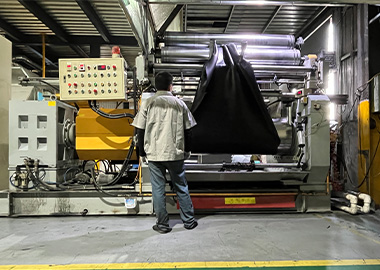diesel hoses
Dec . 05, 2024 21:54 Back to list
diesel hoses
Understanding Diesel Hoses Essential Components for Fuel Transfer
Diesel hoses play a critical role in the transportation and delivery of diesel fuel in various applications, including vehicles, machinery, and industrial equipment. These specialized hoses are designed to withstand the rigors of diesel fuel, ensuring safe and efficient fuel transfer in various environments. Understanding the characteristics, types, and importance of diesel hoses is essential for anyone involved in industries that rely on this important fuel source.
Characteristics of Diesel Hoses
Diesel hoses are constructed to handle the unique properties of diesel fuel, which can be more corrosive and viscous than gasoline. As such, these hoses must be made from durable materials capable of resisting degradation due to prolonged exposure to diesel. Common materials used in the construction of diesel hoses include rubber, thermoplastic, and reinforced synthetic materials, which provide flexibility and strength.
One of the key characteristics of diesel hoses is their pressure rating. Different applications require different pressure ratings, and it is crucial to use hoses that can handle the pressures encountered in a specific system. This involves constant monitoring of the operational environment, including temperature fluctuations and pressure changes.
Moreover, diesel hoses are designed with specific diameters and lengths to suit various applications
. Selecting the appropriate size helps to ensure optimal fuel flow while minimizing the risk of leaks or ruptures. The compatibility of the hose with the fuel it will carry is vital, as using an incompatible hose can lead to chemical breakdown and potential failures.Types of Diesel Hoses
Several types of diesel hoses are available in the market, each suited for particular applications
1. Fuel Transfer Hoses These hoses are commonly used to transfer diesel from storage tanks to vehicles or machinery. They are designed for high-pressure applications and are often reinforced with braided layers to enhance their strength and durability.
diesel hoses

2. Return Hoses In diesel fuel systems, excess fuel often returns to the tank. Return hoses are typically smaller in diameter and are engineered to handle lower pressures compared to fuel transfer hoses.
3. Fuel Injector Hoses These hoses connect to fuel injectors in diesel engines, where the precision of fuel delivery is crucial for engine performance. They must withstand high pressure and temperature fluctuations.
4. Breather Hoses These hoses allow for the venting of gases and vapors from fuel tanks. They help maintain proper pressure in the system and prevent potential leaks.
Importance of Diesel Hoses
The importance of diesel hoses cannot be overstated. They are vital for the safe and efficient operation of fuel delivery systems. Faulty or worn-out hoses can lead to fuel leaks, resulting in safety hazards, costly downtime, and environmental contamination. Regular inspection and maintenance of diesel hoses are crucial to prevent such incidents.
Moreover, the right diesel hose can significantly impact engine performance and efficiency. A properly functioning fuel transfer system ensures that diesel engines receive the correct amount of fuel at the right pressure, contributing to optimal combustion and reducing emissions. This is particularly important in today's environmentally conscious landscape, where regulatory compliance plays a significant role in business operations.
Conclusion
In summary, diesel hoses are essential components in the fuel transfer systems of diesel engines and machinery. Their durability, pressure ratings, and compatibility with diesel fuel make them critical for safe and efficient operations. Understanding the various types of diesel hoses and their applications can aid businesses in making informed decisions about the maintenance and replacement of these vital components. Investing in high-quality diesel hoses is not only a matter of compliance and safety; it is also crucial for maximizing operational efficiency and minimizing environmental impact. Whether in transportation, agriculture, or industrial settings, the significance of diesel hoses should not be overlooked.
